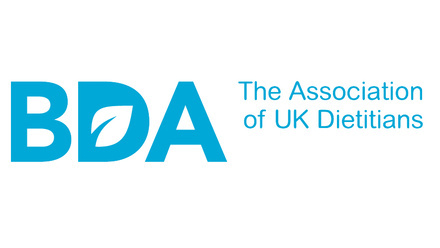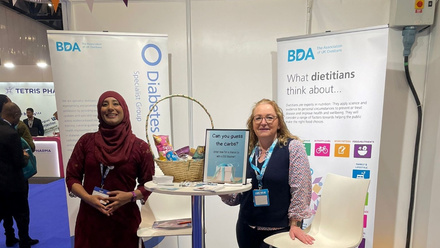Our journey to writing this review started in 2019. If we look back, it felt that several dietitians and medical doctors were embroiled in a war of words about dietary management of type 2 diabetes (T2D) and whose “diet” was best. Claims were made that British Dietetic Association (BDA) dietitians did not approve of using low carbohydrate diets and instead focusing on the Eatwell Guide, and that doctors using low carbohydrate diets were being unsafe in using them with their patients.
However, this disguised the fact that since 2011 the Diabetes UK Nutritional Guidelines, written by BDA dietitians, stated that low carbohydrate diets were a suitable approach, and this was endorsed by a statement in 2018. In addition, doctors within the UK were using low carbohydrate diets safely and effectively to improve the lives of their patients with type 2 diabetes.
Common understanding
So, this began following Adrian attending an All-Party Parliamentary Group on Diabetes meeting on low carbohydrate diets. Here he spoke with several health professionals who advocated low carbohydrate, who he challenged when they claimed BDA dietitians didn’t support ‘low carb’ diets.
This led to a meeting in the summer of 2019 at Diabetes UK offices in London, hosted by Dougie Twenefour and co-chaired with Dr Adrian Brown, members of the Diabetes Specialist Interest Group (Julie Taplin, Paul McArdle and Duane Mellor), dietitians working in diabetes research (Dr Nicola Guest and Dr Pam Dyson), a group of medical doctors (Dr Aseem Malhotra, Dr David Unwin, Dr Campbell Murdoch) and Dr Trudi Deakin from X-Pert Health & Dr Jen Unwin (a health psychologist) who were advocates for low carbohydrate diets. This was all supported by Andy Burman and Tom Embury from the BDA.
To say there was apprehension about the meeting would be an understatement. Historical issues needed to be addressed for a start, such as past unkind comments on social media from both parties. However, this ended up being completely unfounded, and the atmosphere quickly filled with a great deal of common understanding and above all kindness towards each other.
However, when conversations started, and it was acknowledged that a range of diets could help support people living with type 2 diabetes including those using total diets replacements, low carbohydrate and Mediterranean type diets. The discussion we had was wide ranging, from prevention of type 2 diabetes through to its potential remission.
Perhaps an initial stumbling block, were the details and nuances each profession tended to focus on. A GP for example might want a simple and durable message to explain to their patient. This can be seen with the messages used by Dr Unwin, to great effect given the number of individuals he has helped to achieve diabetes remission at his practice in Southport, UK. Whereas a dietitian who through their training and approach may wish to focus on more details about food preparation and the details of the underpinning food science which influence carbohydrate digestion and absorption to glucose. Although both approaches have merits and the dietetic position tended to be biologically precise, it is what matters to the person living with diabetes that matters most, rather than which has the best theoretical principles or underpinning.
A second point of scientific precision over perhaps practical clinical utility, that has been largely overlooked by the recent international consensus on remission of type 2 diabetes, is can remission physiologically happen without weight loss? This was helped with a suggestion from Dr Murdoch. Based on Professor Roy Taylor’s ‘Twin Cycle’ hypothesis, a reduction in fat in the pancreas and liver is needed to induce remission of type 2 diabetes, so what happens when weight is not lost?
With a low carbohydrate diet it is possible to achieve normal blood glucose levels and a HbA1c below the diagnostic threshold (<48mmol/l) without weight loss. This change is driven by the low carbohydrate intake that does not increase plasma glucose levels, leading to excellent control. This perhaps could be termed ‘mitigation of type 2 diabetes’ (a term we coined then used in our article), as if a person returned to eating higher intakes of carbohydrate, glycaemia would increase. This might not technically be remission, but again for the person living with 2 diabetes who is happy continuing to eat a low carbohydrate diet – does it matter?
Both, these two points and the initial drawing together of the many (more than we thought possible) areas of common practice and agreement highlighted the importance of meeting to discuss potential areas of disagreement and come to an amicable solution, rather than what can become increasingly bitter exchanges of contextless soundbites on social media; which help neither profession nor the people with diabetes we profess to be helping.
This point leads to the key point about kindness and bringing hope into conversations about lifestyle change for people with diabetes. Dr Jen Unwin, has worked with Dr David Unwin to develop ways of bringing hope into consultations and looking at “what better might look like”, which can still be managed in a real-life NHS appointment timeslot. So, as well as listening to views of others and questioning your own practice (especially the approaches you may have simply accepted as a student), above all, listen to the service users in front of you and think how life can be made better through dietary and other lifestyle changes even if you have personal opinions about such an approach.
What happened next?
We started writing a narrative and pragmatic review of the potential dietary approaches which can be used to try to achieve remission of type 2 diabetes.
We chose this approach as most of the clinical trials from randomised studies focused on total diet replacements, whereas there were a number of large case series from primary care using low carbohydrate diets. This pragmatic approach allowed us to put the person living with diabetes first!
What did our review find?
Although weight loss appeared to be the primary cause of remission, there was a lack of data in people with type 2 diabetes at a lower body weight (although this data is coming) and only limited data from people from ethnic minority backgrounds.
The clinical trials designed to achieve remission largely used total meal replacements (often in the form of meal replacement shakes) with long term support to help maintain the weight that they have lost. The real-world data from GP practices supported that normal glycaemia can be achieved with a low carbohydrate diet and this could be delivered online. Secondary analysis of studies looking at weight loss, including using a Mediterranean diet can also achieve remission (just in fewer cases).
So, being younger, male, and having type 2 diabetes for less than 6 years increased the likelihood of achieving remission, as did losing greater than 15kg of weight. However, this total weight loss may be a proxy for metabolic changes in the liver and pancreas, which enhance insulin sensitivity and secretion respectively. It is not known if this can occur with less weight loss in individuals following different dietary strategies. In addition, we discussed the variation in the definition of remission that has been used within the literature, meaning comparisons between trail can at times can be challenging. Although this should be addressed with the recent publication of the new international consensus on remission of type 2 diabetes, mentioned above.
What did we conclude?
As with many approaches in dietetics, there is not one dietary approach which is the best. How the data is collected and how studies are undertaken can lead to an increased risk of bias and suggest a level of efficacy which cannot easily be replicated in practice. The key is finding an approach which can lead to dietary change which supports an individual not just to achieve remission, but also maintain that remission for as long as possible.
This could be achieved by a total diet replacement approach followed by strategies to maintain weight loss, a low carbohydrate diet (although without weight loss, changes in insulin secretion and sensitivity may not occur), a Mediterranean diet, or in a few examples a low-fat diet. The key is the approach must suit the person and be sustainable.
The fundamental point from the review was that dietitians along with other health professions should be confident to have informed conversations with people with type 2 diabetes, especially at diagnosis to discuss the possibility of remission and how they might go about achieving it. This should be followed by supporting the individual with dietary change along implementing their preferred approach. This should be done in a supportive way, reminding them that even if they do not achieve remission, lifestyle changes are likely to bring about metabolic and health changes, which can improve glycaemic control and reduce risk of complications including cardiovascular disease.
The importance of communication
Another success of this piece of work was how it was communicated, we worked with our universities to develop a press release which was reported in The Telegraph and Daily Mail alongside our own summary article published on The Conversation (which to date has over 190,000 reads). As the paper was published online, we, as a group, promoted it on social media. To date this article has an estimated reach via Twitter of over 2 million!
We have not stopped there, we along with David Unwin did a Podcast chat for Dietitian Kitchen with Harriet Smith, further sharing the messages of offering choice and hope of how dietary changes can improve health. Writing an article for an academic journal might not be of interest to everyone, however looking to routes about how you can increase the reach and readership of your work is.
Look for how you can use social media, your own or your organisation’s website to share messages and take opportunities as they arise. There is limited point in publishing if no one hears about your research or it lacks impact on clinical practice. Our profession of dietetics needs as many positive voices as possible about how dietitians can work with people to change how they eat, offering hope and improve health.
This is just our story about how starting with listening to others, building common ground and questioning tradition can lead to an improved understanding of different types of practice, which in turn improves practice. Hopefully, closer colleagues and being able to offer hope to people with type 2 diabetes of a way forward with fewer or no medication and the possibility of remission.
Dietary change and therefore dietitians can change lives, we just need to be bold, communicate what we do well and build our knowledge and research base.





